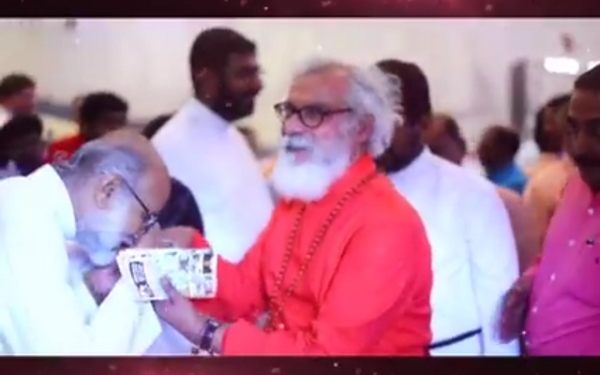Today, a Canadian court held a hearing to decide whether or not a lawsuit would be certified as a class action suit. Attorney Paul Guy represented plaintiff Greg Zentner in the effort to certify the case as a class action suit representing all donors to Gospel for Asia – Canada.
Attorney Jeffrey Leon represented GFA – Canada and argued that the suit should not be certified as a class action suit. Leon also made an argument that donors have no standing to sue since they suffer no loss when they donate, even to a fraudulent organization. Leon told Justice Cavanaugh that Canadian authorities could weigh in and prosecute fraud if it exists. However, individual donors don’t have a loss to sue over, according to Leon.
It was curious to me that Leon sought to cast doubt on the identity of GFA in India during the recent raids on Believers’ Church. Even though the funds sent to Believers’ Church came from GFA, he sought to distance K.P. Yohannan’s organization in India from GFA-Canada. Overall, it appears to be a large part GFA-Canada’s defense to pretend there is no connection between GFA-Canada, GFA-World, Believers’ Church and the various trusts in India.
Yohannan’s organizations are controlled by him and his family. Various national groups send their money to Believers’ Church in India (or at least did when Believers’ Church was allowed to accept those funds). Money was donated in Canada with the intention of sending it to India for use by Believers’ Church. If donors checked one box for use of their funds (e.g., poor people), but those funds went for building for profit hospitals and schools or a purpose other than checked by the donor, it is hard to escape the conclusion that the charity misled the donor.
Read the briefs (“facta” in Canada) associated with the case thus far.
Factum for Greg Zentner (plaintiff)
Respondents Factum Pat Emerick and GFA World
Observations
Jeffrey Leon said K.P. Yohannan doesn’t have control over the GFA/Believers Church organizations. Historically, Yohannan has been in control, but I can see claiming he isn’t or hasn’t been in charge is an ongoing part of GFA’s defense. However, I have shown in numerous blog posts that Yohannan is involved in nearly all of the GFA organizations around the world. He has said in the past he doesn’t sit on the boards in India; however, I showed that he does (or at least did in 2015).
It is stunning that GFA’s lawyers cast doubt on the charities raided by India authorities. As a legal strategy, one can claim that hearsay can’t be admitted, but this is deceptive. Of course, the Indian government raided Believers’ Church, the same church that is run by K.P. Yohannan and takes funds from GFA-Canada and GFA affiliated organizations around the world. What do all of the donations go for? They are sent to India. Since 2017, those funds have been received illegally. Who knew about that? Who approved it? Who used those funds despite them being accepted from Canada against Indian law? Is anybody really going to try to make a case that K.P. Yohannan didn’t authorize all of those actions?
GFA’s case summed up by attorney Jeffrey Leon is this: If you don’t like how we used your donations, then don’t give us any more money. And if you want to claim we used it fraudulently, then tell it to the regulatory agencies. Don’t sue us for fraud.
What a smug, dismissive line of thinking. How are donors supposed to know what they are donating to if GFA doesn’t tell them? When donors find out that funds are used for purposes other than specified, it is too late.
